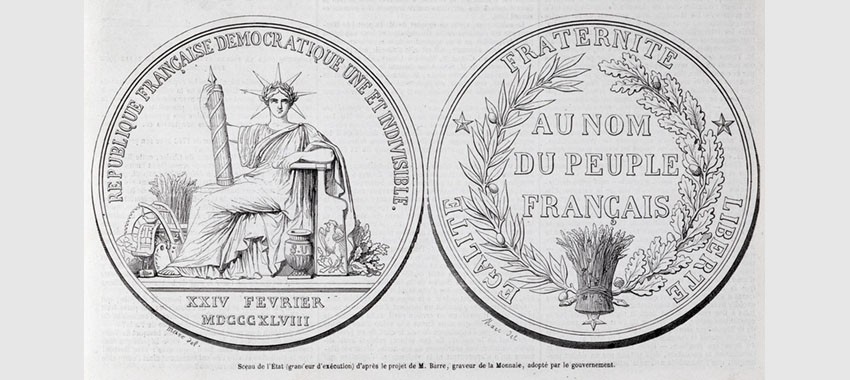France, an indivisible, secular, and democratic Republic


On Friday 16 October 2020, Samuel Paty, a history and geography teacher, was beheaded in a street in Eragny, near Conflans-Saint-Honorine [in the north-west suburbs of Paris] by an Islamist terrorist. A few days earlier, his choice of teaching civic education had been criticised by some parents, some demanding his dismissal, in circumstances that are currently under criminal investigation.
These words are still unbearable to write and read today. And it must remain so.
Whilst we try rationally to understand how such a thing can happen (always a good idea when you’re trying to find the means with which to defend democratic, human and Republican values), we should not try to make it somehow less than it is: this was a barbaric act, carried out deliberately, which has once again targeted the French national education system, that is free for all in France and a fundamental institution of our society.
The Fondation Napoléon would like to extend its very sincere condolences to the family of Samuel Paty, and to his friends, colleagues, and pupils.
And we wish to reaffirm, forcefully, our determination to defend, in all of our actions, freedom of thought, which is inseparable from education and culture, in accordance with the Constitution and laws of the French Republic*:
FIRST ARTICLE of the Constitution
La France est une République indivisible, laïque, démocratique et sociale. Elle assure l’égalité devant la loi de tous les citoyens sans distinction d’origine, de race ou de religion. Elle respecte toutes les croyances. Son organisation est décentralisée.
La loi favorise l’égal accès des femmes et des hommes aux mandats électoraux et fonctions électives, ainsi qu’aux responsabilités professionnelles et sociales.
[France shall be an indivisible, secular, democratic and social Republic. It shall ensure the equality of all citizens before the law, without distinction of origin, race or religion. It shall respect all beliefs. It shall be organised on a decentralised basis. Statutes shall promote equal access by women and men to elective offices and posts as well as to positions of professional and social responsibility].
ARTICLE 2.
[…] La devise de la République est “Liberté, Égalité, Fraternité”.
Son principe est : gouvernement du peuple, par le peuple et pour le peuple.
[The maxim of the Republic shall be “Liberty, Equality, Fraternity”. The principle of the Republic shall be: government of the people, by the people and for the people].
ARTICLE 3.
La souveraineté nationale appartient au peuple qui l’exerce par ses représentants et par la voie du référendum.
Aucune section du peuple ni aucun individu ne peut s’en attribuer l’exercice. […]
[National sovereignty shall vest in the people, who shall exercise it through their representatives and by means of referendum. No section of the people nor any individual may arrogate to itself, or to himself, the exercise thereof]
published 20 october 2020
*https://www.conseil-constitutionnel.fr/sites/default/files/as/root/bank_mm/anglais/constiution_anglais_oct2009.pdf
